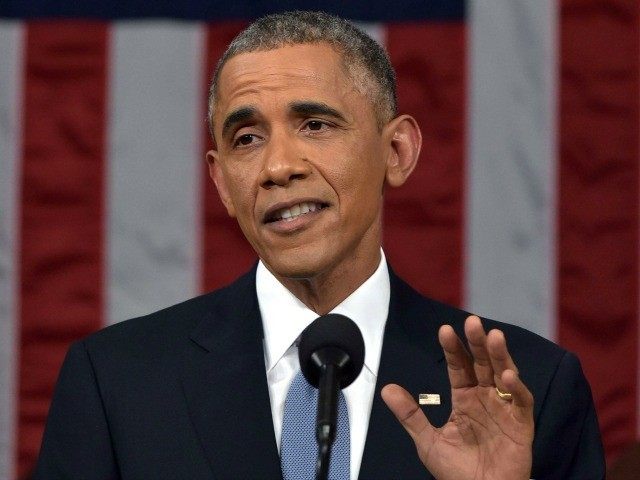Despite the best efforts of his staff, we saw the real Barack Obama last night. In the time it takes a smirk to spread across a face, the president revealed himself to be something quite different than the earnest believer in bipartisanship the speech was crafted to convey.
The tension between the president’s supposedly practical ends and his entirely partisan means was immediately evident. “I will send this Congress a budget filled with ideas that are practical, not partisan,” he said. He added, “And in the months ahead, I’ll crisscross the country making a case for those ideas.” So he’ll be going into full partisan campaign mode once again to push these non-partisan ideas.
The mask of bipartisanship, however implausible, stayed in place throughout most of the speech. The final third of his message was a self-conscious throwback to an old theme about unity.
You know, just over a decade ago, I gave a speech in Boston where I said there wasn’t a liberal America, or a conservative America; a black America or a white America — but a United States of America. I said this because I had seen it in my own life, in a nation that gave someone like me a chance; because I grew up in Hawaii, a melting pot of races and customs; because I made Illinois my home — a state of small towns, rich farmland, and one of the world’s great cities; a microcosm of the country where Democrats and Republicans and Independents, good people of every ethnicity and every faith, share certain bedrock values.
Over the past six years, the pundits have pointed out more than once that my presidency hasn’t delivered on this vision. How ironic, they say, that our politics seems more divided than ever. It’s held up as proof not just of my own flaws — of which there are many — but also as proof that the vision itself is misguided, and naïve, and that there are too many people in this town who actually benefit from partisanship and gridlock for us to ever do anything about it.
I know how tempting such cynicism may be. But I still think the cynics are wrong.
There are few things as cynical as a politician bashing the cynics. After several more soaring paragraphs the president outlined his idea of “a better politics.”
A better politics is one where we appeal to each other’s basic decency instead of our basest fears.
A better politics is one where we debate without demonizing each other; where we talk issues, and values, and principles, and facts, rather than “gotcha” moments, or trivial gaffes, or fake controversies that have nothing to do with people’s daily lives.
A better politics is one where we spend less time drowning in dark money for ads that pull us into the gutter, and spend more time lifting young people up, with a sense of purpose and possibility, and asking them to join in the great mission of building America.
The hypocrisy is astounding. The president didn’t win the 2012 campaign on the strength of issues, he won on gaffes (binders full of women), gotchas (“act of terror”), and fake controversies (war on women, Seamus the dog, a car elevator). Democrats ran some of the foulest political ads ever aired (Romney killed a woman with cancer) and made completely unsubstantiated claims about Romney’s taxes. In short, Obama is in no position to talk about a better politics. He is the reigning master of the cynical, gutter politics he claims to despise.
The beauty of last night’s speech was that in the midst of all his high-minded rhetoric the President slipped. All of the carefully crafted paragraphs about a better politics were blown away in one instant of thin-skinned irritation. After the President said, “I have no more campaigns to run,” Republicans began applauding. The President snapped back, “I know cause I won both of them.” This brought howls and applause from the left. The president acknowledged this with a chuckle and then with a self-satisfied smirk.
Did he realize in that moment that he’d just undercut the last 1,000 words of this speech?
President Obama wanted to project an image of himself as a believer in “a better politics,” but what his unscripted reaction revealed was something else. The mask of bipartisan comity is hiding a disdainful smirk. Behind the earnest stage whisper about common ground is a cynic’s chuckle at his opponent’s expense. What we saw last night, for a moment, was the real Barack Obama. When it comes to being a uniter he talks a good game. He may even believe it, right up until the moment he’s challenged. Then, in the blink of an eye, he’s the competitor who has to remind you who won and “a better politics” is out the window. That dynamic surely helps explain why we are where we are today and not where the president so often claims we ought to be.


COMMENTS
Please let us know if you're having issues with commenting.